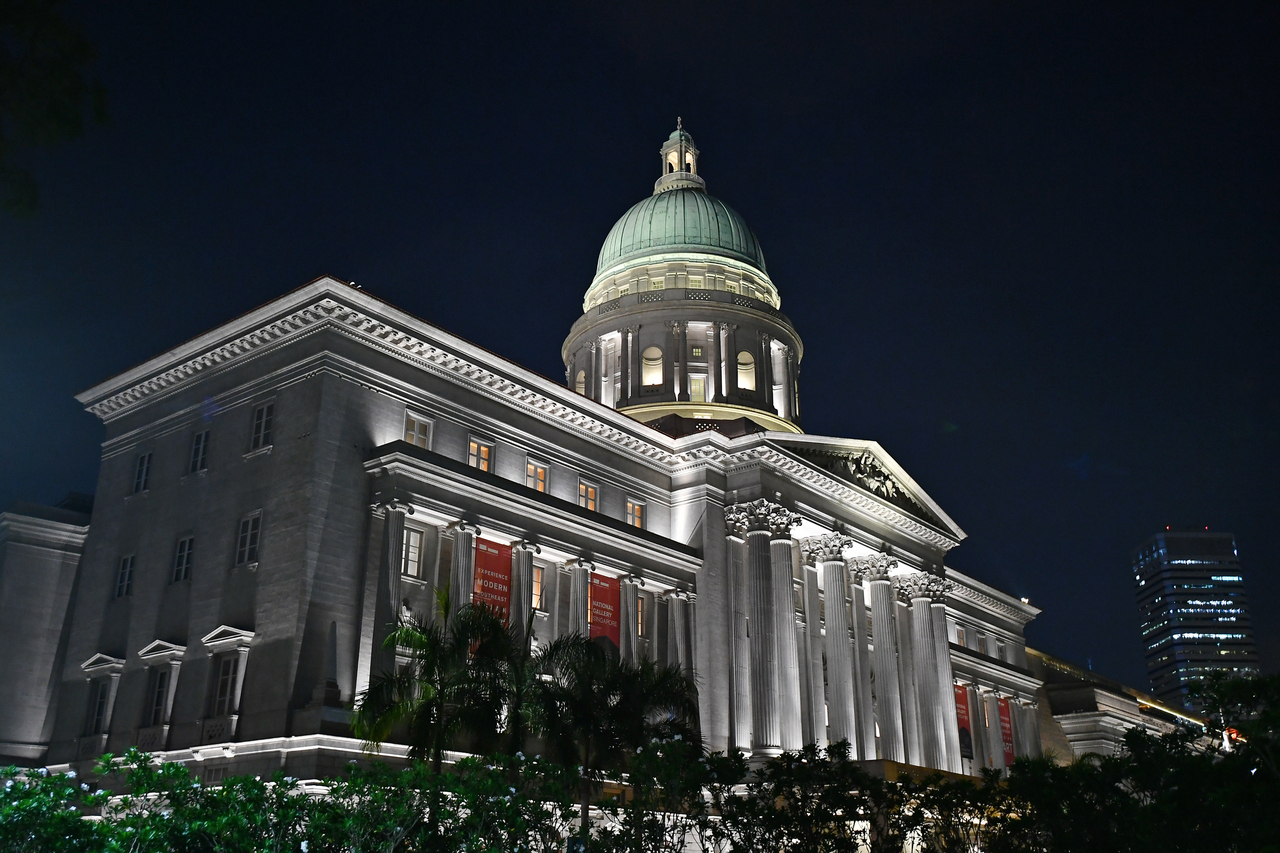Parliament: Govt offers grants and subsidies to arts groups amid Covid-19 outbreak
Sign up now: Get ST's newsletters delivered to your inbox

Those running events in national cultural institutions such as the National Gallery between March 7 and June 30 will get a nearly one-third reduction in their venue rental and associated costs.
PHOTO: ST FILE
Follow topic:
SINGAPORE - Arts groups can tap two new schemes to improve their skills and ease expenses amid the coronavirus outbreak, which has led to shows being cancelled or postponed.
About $1.6 million will be set aside for the initiatives, said Senior Parliamentary Secretary for Culture, Community and Youth Baey Yam Keng in Parliament on Friday (March 6).
One of the two initiatives is a one-time capability development grant to subsidise the cost of local courses.
It is open to both individuals and arts organisations, which can either enrol their staff in such programmes or organise courses for them. Applications open on March 16.
Organisations identified as NAC Major Companies and Seed Grant Companies can apply for up to $10,000. Other organisations will receive up to $3,000 and individuals, up to $600.
The other initiative is a subsidy to cushion the financial impact of the outbreak on arts practitioners.
Those running events in national cultural institutions between March 7 and June 30 will get a nearly one-third reduction in their venue rental and associated costs.
This 30 per cent subsidy applies to performances, exhibitions, rehearsals and workshops in the Esplanade, the National Gallery, Singapore Chinese Cultural Centre, Singapore Conference Hall, National Heritage Board museums and Arts House venues.
"We want cultural performances to continue during this time, as the arts inspire us and lift our spirits, as long as necessary precautions are in place," said Mr Baey, during the debate on his ministry's budget.
"This is what MCCY (Ministry of Culture, Community and Youth) agencies and institutions - including the National Arts Council, National Heritage Board and People's Association - will commit to, where possible.
"We also want to encourage arts and culture practitioners to take this opportunity to develop their capabilities and better position themselves for the future."
The grant and subsidy schemes are part of the Stabilisation and Support Package announced by Deputy Prime Minister Heng Swee Keat last month as part of Budget 2020.
The Budget also contains a range of measures that could benefit arts practitioners - such as the $500 SkillsFuture Credit top-up, Jobs Support Scheme, enhanced Wage Credit Scheme, up to $300 cash support for Singaporeans aged 21 and older, and a training support scheme to help freelancers upgrade their skills.
Mr Baey set out these various efforts in his reply to Mr Henry Kwek (Nee Soon GRC) and Nominated MP Terence Ho, who had asked how the ministry would support the arts community during Covid-19.
Mr Kwek had proposed giving more support for capability development, while Mr Ho suggested revising the Cultural Matching Fund to better support small and medium-sized arts groups.
The Fund matches, dollar-for-dollar, cash given by private donors to registered charities in the arts and heritage sector. Mr Ho suggested raising the ratio to 1:2.
Responding, Mr Baey said the ministry will launch a new fund to help smaller arts groups become more sustainable and achieve Institutions of a Public Character (IPC) status.
"We recognise that smaller arts groups may need more help, as they lack strong fund-raising capabilities," he said. "We will help these groups with the new Sustain The ARTs Fund, or stART Fund for short."
The stART fund will gather donations from corporations and individuals, which will be matched by the Cultural Matching Fund where eligible.
The money will support small arts groups in programming and to develop "robust governance structures and attain Charity and eventually IPC status", he added.
The NAC plans to grow the stART Fund to $10 million - enough to support nearly 100 groups - between 2020 and 2022, said Mr Baey.
To be eligible, arts groups must be registered with the Commissioner of Charities, Accounting and Corporate Regulatory Authority, or Registry of Societies, and have a total operating expenditure of less than $1 million a year.
Members of the arts community welcomed the measures, but asked if more could be done.
Nine Years Theatre's co-founder Nelson Chia, 48, noted that their Mandarin play First Fleet - originally scheduled for last month - was postponed to March next year. The company spent a five-figure sum on compensation for freelancers who worked on the show.
Mr Chia found the schemes encouraging, but said: "What about losses that have already been incurred?... Is there a case for case-by-case support?"
Teater Ekamatra's artistic director Mohd Fared Jainal, 46, said the theatre company plans to apply for the capability development grant and enrol its staff in marketing and technical theatre courses. "Anything would be of help right now," he said, but added that NMP Terence Ho's suggestion to increase the Cultural Matching Fund's ratio to 1:2, would be even more useful.
"As an ethnic minority theatre company, getting donors is really tough - even without Covid-19, it's already very difficult for us."
Freelance actor and voice-over artist Edward Choy, 40, was heartened by the Government's efforts to help the sector.
He suggested that the Government could launch a special fund to support "uplifting" works in response to the virus, and provide funding for arts practitioners who want to run classes for other artists.
"We don't know what's going to happen in two to three months' time, but right now, there are lots of people who are just sitting around and feeling really worried.
"For the Government to say, 'We'd like to see you continue to improve as an artist and create work' would be very reaffirming for us."

